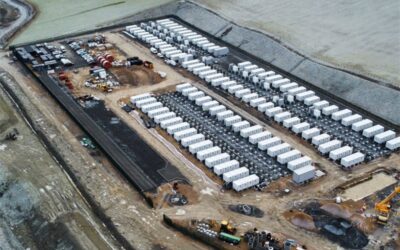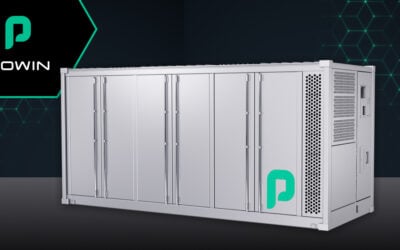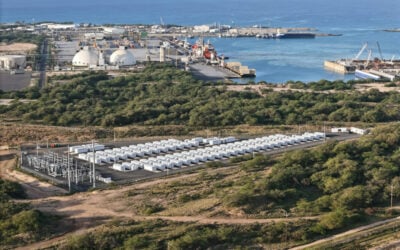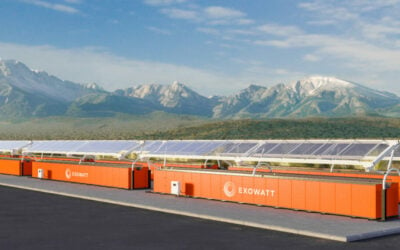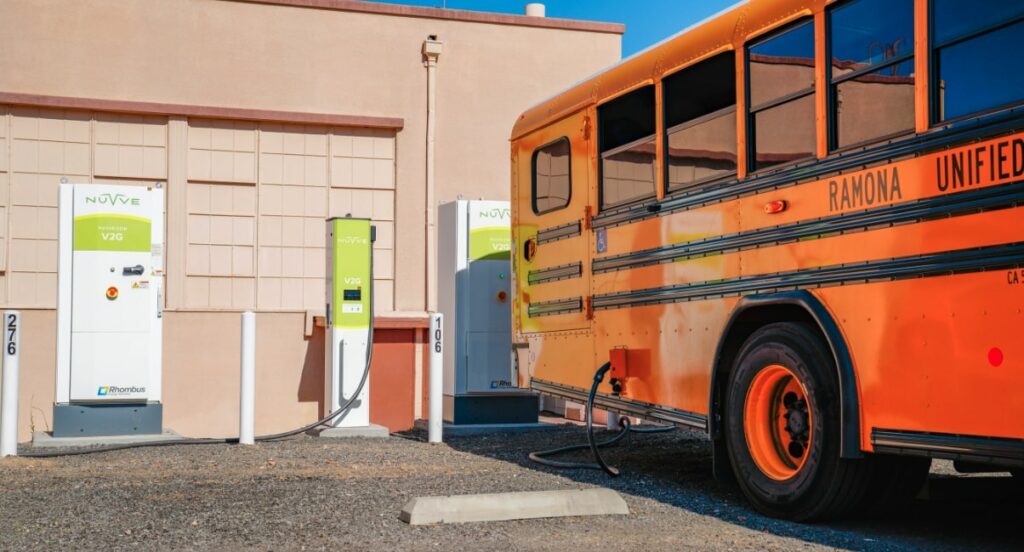
US vehicle-to-grid (V2G) technology company Nuvve has entered a strategic partnership with Chinese battery and energy storage solutions manufacturer Guangzhou Great Power.
The agreement will see Nuvve’s energy management and aggregation platforms for electric vehicles (EVs) paired with Guangzhou Great Power (Great Power) battery products.
Enjoy 12 months of exclusive analysis
- Regular insight and analysis of the industry’s biggest developments
- In-depth interviews with the industry’s leading figures
- Annual digital subscription to the PV Tech Power journal
- Discounts on Solar Media’s portfolio of events, in-person and virtual
Or continue reading this article for free
The US company will be Great Power’s preferred partner in energy management and flexibility aggregation, while Great Power will supply Nuvve-branded pre-validated battery energy storage system (BESS) solutions to the market.
The solutions will be integrated with Nuvve’s aggregation platform GIVe (the capitalised letters stand for Grid Integrated Vehicle) and its energy management system (EMS). The integrated offering is expected to be ready by the third quarter of 2024.
Like other V2G technologies, GIVe uses bidirectional charging to turn parked EVs into grid assets. This enables them to help utilities manage peak demand and provide ancillary services such as frequency response.
It also means the vehicle driver or owner can earn revenues that, in turn, help lower their cost of ownership.
At the same time, V2G can enable increased adoption of renewable energy through charging EVs when solar PV or wind power is cheapest and most abundant and discharging their power to meet shortfalls in renewable generation.
By partnering with Great Power, Nuvve can extend those capabilities to EV charger units, putting stationary batteries at chargepoints.
The partners aim to offer a complete package of EV infrastructure, stationary battery storage and energy management, working on a project pipeline in North America, Europe and Asia, along with some of Nuvve’s existing projects at school districts in California.
‘Significant cost savings’ projected by company’s modelling
V2G technology, therefore, offers promise in terms of optimising energy usage, reducing network management costs and aiding the decarbonisation of the grid.
However, barriers to its adoption include the difficulty of accommodating owners’ charging habits around the grid’s needs and the reluctance of some EV owners to allow their utility or grid operator to manage their batteries.
That is one reason why V2G providers such as Nuvve often initially target fleet vehicles, such as delivery trucks or school buses. That strategy has the advantage of enabling access to multiple vehicles, which will be operated on set schedules and with larger battery capacities than individual passenger vehicles.
For example, at a Nuvve project in San Diego, eight new electric school buses and Nuvve DC fast chargers were qualified to generate revenues for Ramona Unified School District through enrollment in utility SDG&E’s Emergency Load Reduction Program (ELRP) in 2022.
“Our techno-economic modelling demonstrates significant energy savings from Nuvve’s total energy management for customers, particularly in areas with high energy rates or demand charges,” Hamza Lemsaddek, Nuvve’s VP of technology and its AI joint venture Astrea said in a press release yesterday.
“In the San Diego area, a typical school district purchasing energy from the local utility could save up to 40% or more on their bill by adding in a single Nuvve 400kWh BESS. V2G technology and grid services like Demand Response increase those savings.”
The company is also targeting other opportunities, such as a partnership with residential virtual power plant (VPP) specialist Swell Energy in the US, a deal with roadside service station operator Circle K to aggregate EV chargers and stationary BESS to play into Nordic frequency regulation markets in Norway and Denmark.
In Asia, Nuvve has also signed a deal to play stationary storage systems into Japan’s power markets, and with a local partner recently won an RFP held by the grid operator and utility of Taiwan, Taipower, to deploy the island’s first bidirectional charging hub.
As of the end of last year, the startup had just over 25MW of assets under management worldwide.
Some policymakers and regulators are becoming aware of the V2G potential and sought to remove barriers, with Maryland becoming the first US state to require utilities to allow EVs to connect to the distribution grid earlier this year.
Great Power meanwhile was established in 2001. Its main business is the manufacturing of lithium-ion (Li-ion) batteries for stationary storage applications, although it has also recently begun production of sodium-ion (Na-ion) batteries.
Great Power has nine production centres. Late last year it began construction on a gigafactory in Qingdao, China, claimed to be among the first to meet ‘zero carbon standards,’ and with an initial 12GWh per annum annual production capacity, capable of ramping up to 36GWh per year. It is also set to open its first factory outside of China in Vietnam during this year.


